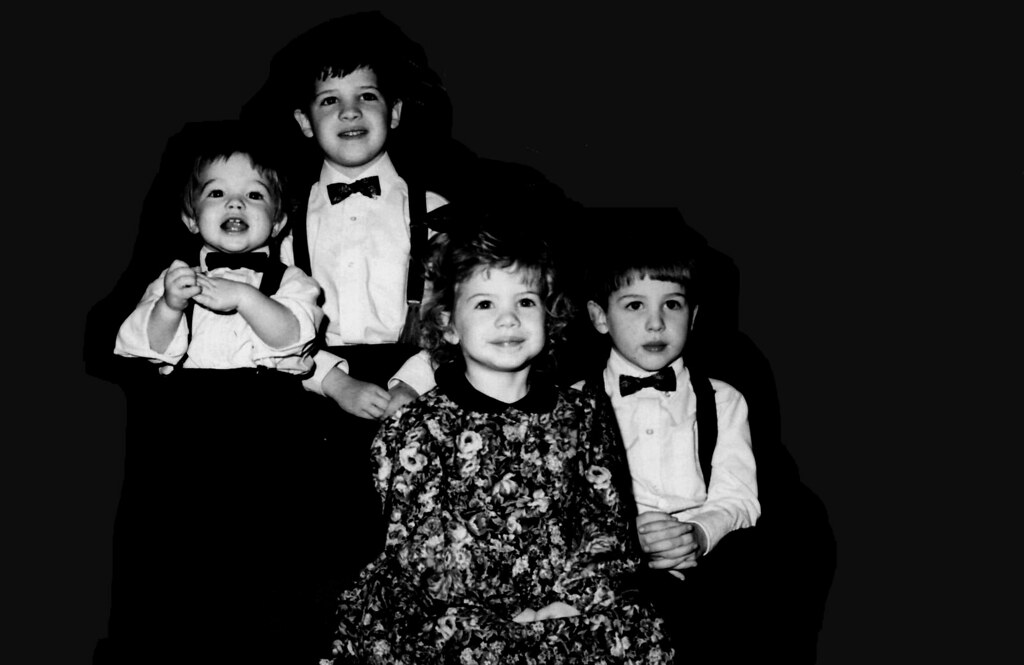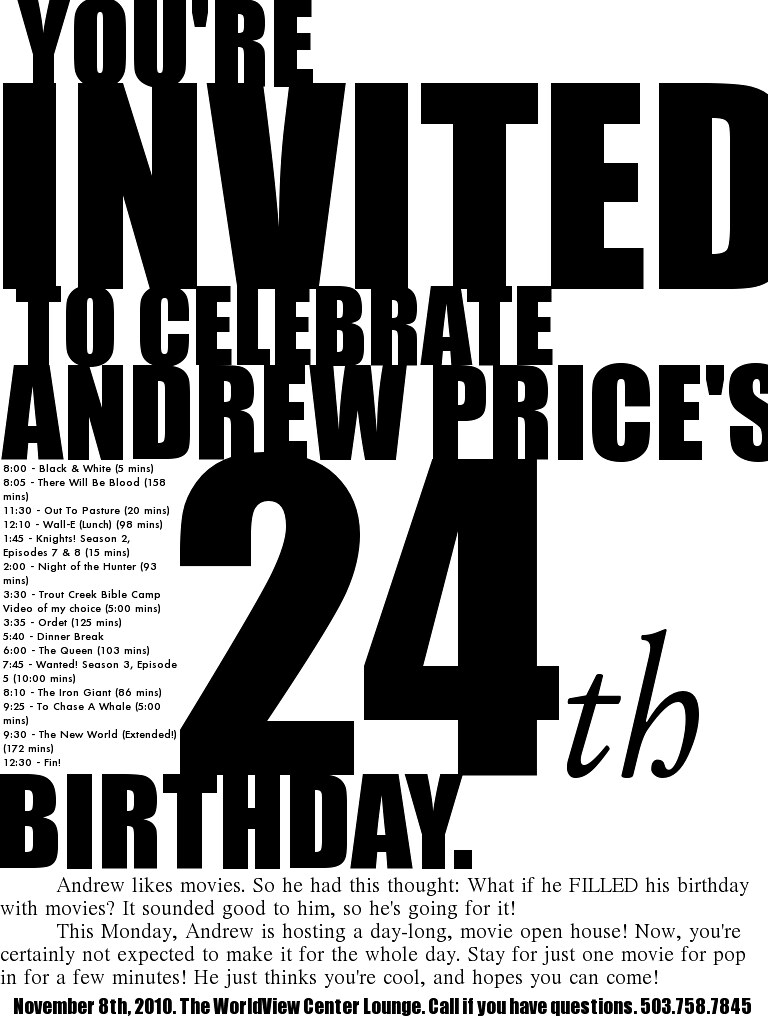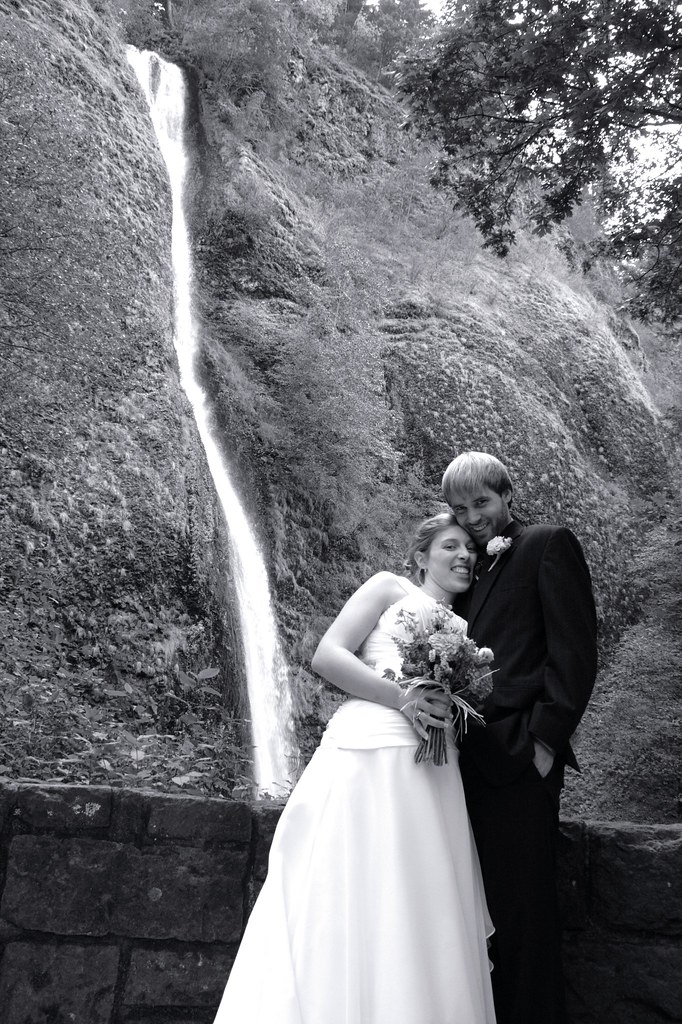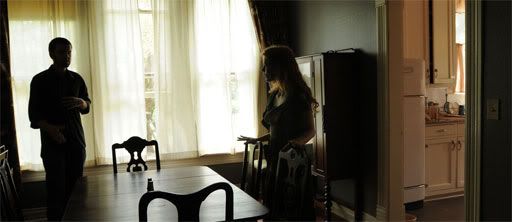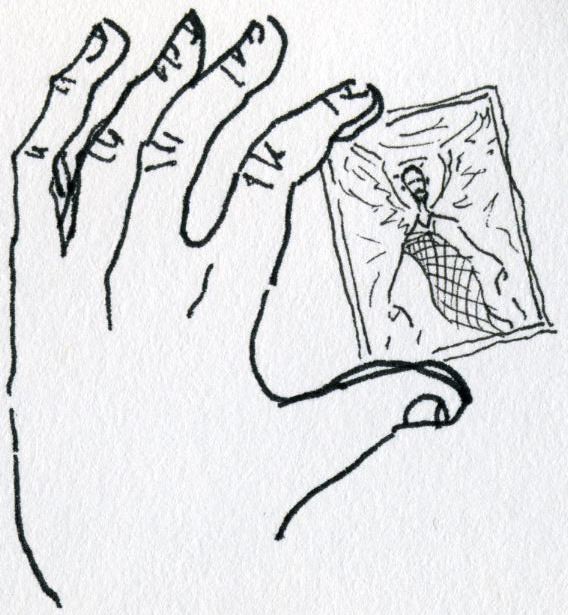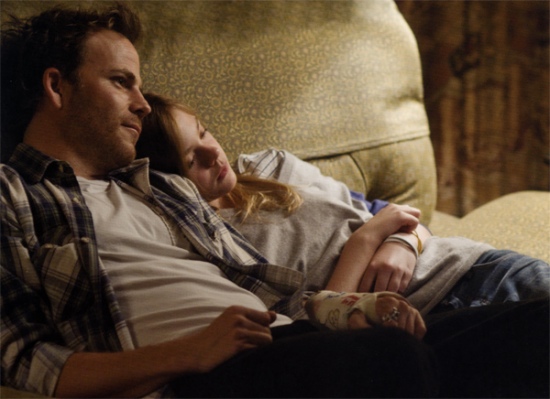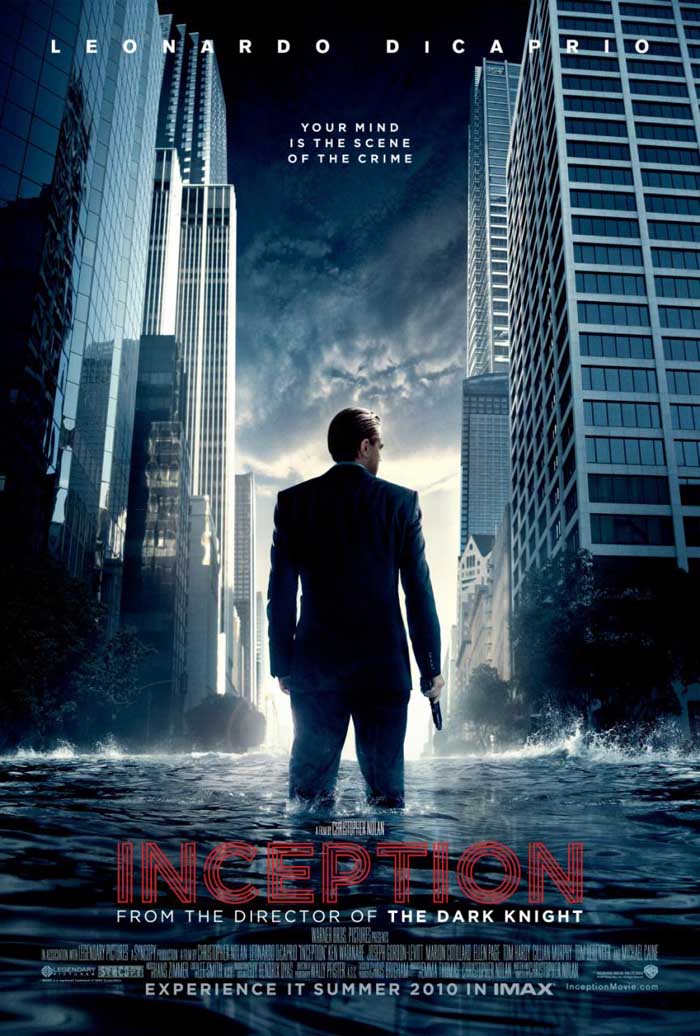Wednesday, December 29, 2010
Tuesday, December 28, 2010
Monday, December 27, 2010
Monday, November 29, 2010
Friday, November 12, 2010
Thursday, November 11, 2010
Sunday, November 07, 2010
On Being 23
I was very excited last year about turning 23. I had a strong feeling that something very good was going to happen when I was 23.
Here's a look back to see if I was right, more or less chronologically.
I turned 23, for the first time.
I dated a wonderful friend.
I co-wrote/illustrated half a book with a friend of mine (we've taken a hiatus since she started kindergarden).
My Mom's cancer was safely removed from her body, and she regained full health.
I had the worst sunburn of my life and an ulcer. It was also suspected that I had a liver malfunction of some sort. This has been since ruled out.
I started two amazing graphic novel series. (Fables and Y: The Last Man.)
I reached the wonderful finales of Battlestar Galactica and Sports Night.
I kissed a tree.
For the first time in my life, I got my own room. I now have two beds.
I worked at PGE Park for the Portland Beavers' last season, and I worked that historic park's last season of as a baseball park.
I had my appitite for almost all books ruined by Mark Helprin, whose books read like slip'n'slides yet plunge to the uttermost depths of the human soul.
I saw Arcade Fire live. And, by many accounts, one of the best Over the Rhine shows they've ever done.
I saw about a third of my church peers get married and got to participate in some way in almost every wedding. I had, probably, the best emceeing experience of my life. One bride's entrance (in a canoe, in the rain) was one of the most beautiful things I've seen in a while.
I ran. I slept. I drank and ate. I loved deeply, cried hard. There were moments I looked around and was overwhelmed by the joy present in that moment and in my life.
I spent two absolutely joy-filled weeks at Trout Creek Bible Camp, one home of many.
I was loved by Steve Price, Joann Price, Christopher, Matthew and Anna. My life-ful, life-bringing, love-ful, family.
I went through the most profound time of intellectual doubt I've ever experienced. And came out the other side with a lot of work yet to do and ready to explode with joy.
I sang and sang and sang.
I spearheaded (it seems very vain to say that) two of our best kid's club seasons.
I grew. I saw areas of deep, deep need. I was shown a very clear reflection of myself and was(am) astounded by the distance I have to go till I am a heathy whole human being.
I had the deep, deep honor of getting to take pictures of my friends in Columbia Gorge the day before their wedding.
I began my last term at my school before I begin I enter into a year-long season of insanity focused on my final project.
I ministered to my friend.
I stood taller, with many of my friends.
I helped one of my friends with her "12 to 5am" shoot. Twice.
I climbed a mountain. With a very special bear.
I could go on. I had no idea before writing that how right this year was. I'm going to say, even with all the hardships this year held, my intuition was not wrong. 23 was a beautiful year.
Here's to 24.
Here's a look back to see if I was right, more or less chronologically.
I turned 23, for the first time.
I dated a wonderful friend.
I co-wrote/illustrated half a book with a friend of mine (we've taken a hiatus since she started kindergarden).
My Mom's cancer was safely removed from her body, and she regained full health.
I had the worst sunburn of my life and an ulcer. It was also suspected that I had a liver malfunction of some sort. This has been since ruled out.
I started two amazing graphic novel series. (Fables and Y: The Last Man.)
I reached the wonderful finales of Battlestar Galactica and Sports Night.
I kissed a tree.
For the first time in my life, I got my own room. I now have two beds.
I worked at PGE Park for the Portland Beavers' last season, and I worked that historic park's last season of as a baseball park.
I had my appitite for almost all books ruined by Mark Helprin, whose books read like slip'n'slides yet plunge to the uttermost depths of the human soul.
I saw Arcade Fire live. And, by many accounts, one of the best Over the Rhine shows they've ever done.
I saw about a third of my church peers get married and got to participate in some way in almost every wedding. I had, probably, the best emceeing experience of my life. One bride's entrance (in a canoe, in the rain) was one of the most beautiful things I've seen in a while.
I ran. I slept. I drank and ate. I loved deeply, cried hard. There were moments I looked around and was overwhelmed by the joy present in that moment and in my life.
I spent two absolutely joy-filled weeks at Trout Creek Bible Camp, one home of many.
I was loved by Steve Price, Joann Price, Christopher, Matthew and Anna. My life-ful, life-bringing, love-ful, family.
I went through the most profound time of intellectual doubt I've ever experienced. And came out the other side with a lot of work yet to do and ready to explode with joy.
I sang and sang and sang.
I spearheaded (it seems very vain to say that) two of our best kid's club seasons.
I grew. I saw areas of deep, deep need. I was shown a very clear reflection of myself and was(am) astounded by the distance I have to go till I am a heathy whole human being.
I had the deep, deep honor of getting to take pictures of my friends in Columbia Gorge the day before their wedding.
I began my last term at my school before I begin I enter into a year-long season of insanity focused on my final project.
I ministered to my friend.
I stood taller, with many of my friends.
I helped one of my friends with her "12 to 5am" shoot. Twice.
I climbed a mountain. With a very special bear.
I could go on. I had no idea before writing that how right this year was. I'm going to say, even with all the hardships this year held, my intuition was not wrong. 23 was a beautiful year.
Here's to 24.
Friday, November 05, 2010
Please Come!
8:00 - Black & White (5 mins)
8:05 - There Will Be Blood (158 mins)
11:30 - Out To Pasture (20 mins)
12:10 - Wall-E (Lunch) (98 mins)
1:45 - Knights! Season 2, Episodes 7 & 8 (15 mins)
2:00 - Night of the Hunter (93 mins)
3:30 - Trout Creek Bible Camp Video of my choice (5:00 mins)
3:35 - Ordet (125 mins)
5:40 - Dinner Break
6:00 - The Queen (103 mins)
7:45 - Wanted! Season 3, Episode 5 (10:00 mins)
8:10 - The Iron Giant (86 mins)
9:25 - To Chase A Whale (5:00 mins)
9:30 - The New World (Extended!) (172 mins)
12:30 - Fin!
Saturday, October 30, 2010
On Killing Butterflies (Originally published 4/18/06)
An absurd concept has crept its merry way into the doors of the modern Church. A concept so perverse in nature and crippling to the Church’s ability to communicate effectively, that it needs to be done away with: The Church has somehow got into its head an idea that is as strange and peculiar as the idea that birds should live in the belly of the ocean and that fish should sleep in trees. The Church has, in fact, made an equation between truth and fact.
Once, long ago, I was having an intense late-night conversation with my brother. We were talking about the state of the world and that kind of thing, when eventually the conversation led to the place all conversations between homeschoolers ultimately led back then: Harry Potter. As I remember it, my brother and I were talking about whether or not Harry Potter was evil, and, I think, my brother was defending him (which would be just like him to do something sinful like that). As the conversation progressed, I found it necessary to deliver my basic philosophy of fairy tales, since that was clearly becoming the issue. Unfortunately, at the time, I had no such philosophy. Thankfully however, in the course of conversation, a particularly reasonably sounding philosophy presented itself to me. So as a triumphant climax to the debate I speculated that the only acceptable fairy tales are the ones which state that they are just fairy tales. That is, they don’t pretend to have taken place in the real world. Stories that pretend that the fabrics from which they are woven (whether they be elves, magical realms, genies, or talking animals) are actually a part of the real world, I speculated, lie, because such stories state the facts of human history and experience as other than they are.
This is the stance I took, and really what other stance could I, a Christian, a worshipper of the Truth, take on such an issue? I saw no way around it. So that night, standing on the cement floor of our unfinished Colorado basement, I took the ultimate stance that a homeschooler can take against anything: I stated that I would not allow my children to read these kinds of stories. Stories like Aladdin and The Lord of the Rings, even, for according to the facts there are no such things as genies in the real world, and the actual history of “Middle Earth” is not as Tolkien presented it. Don’t misunderstand me here; I certainly didn’t want to take these things away from my (nonexistent) kids, but, as I saw it, I had no choice. Anything that runs against the facts has to be a lie, I reasoned, and I wasn’t about to partake in spreading lies. Satan himself is the Father of lies and lies are opposed to God, who is the Truth. I didn’t see any way around it.
That was about five years ago. Fast-forward to my life now: As my top-twenty favorites lists stand now, almost all of the books on them are either fantasies, fairy-tales of some sort, or (though I hate the term) science-fiction. And, of course, the rest of the fiction is just that: fiction, putting forth as truth events that have never taken place. And this disregard for facts lapses into my taste in music and movies as well. So what’s changed? How can I possibly justify indulging in (and recommending!) artwork based on untruths? I can do so for this one reason only; a reason so obvious and plain that I’m ashamed not to have seen it earlier: in my philosophy I was drawing a nonexistent equation between truth and fact. For truth and fact are similar, and easily mistaken. But the difference is important: Fact is the stuff of texts books, the stuff of dead theology. Truth is what led the books to be written, and is what first sparked the fire of love within the heart of the theologian. Facts can be proved by empirical means, the five senses, but truth lies beyond the merely physical realm: Like a dissected butterfly, a fact lies dead on a table or in a jar, revealing all of the information that a scientist could want about the construction of the butterfly. Yet it seems that, in killing the butterfly, the essence of the butterfly is somehow missed. Truth, on the other hand, flits from flower to flower, never quite displaying itself fully, but always entrancing us with its mystery.
But why should we care? How can such semantics possibly affect our lives and the life of the Church? As I see it, this is an essential concept to the artist (stick with me here) because, though the artist deals in facts (events, conversations, objects, and so forth), he must see beyond these things to the Truth and do his best to point his audience beyond these things as well. It is essential to the Church in general for the same reason: the Church too must see beyond the veil of this world. For an example, let us bring this idea back to where we started with it: the realm of the fairies. In our world we are surrounded by meaninglessness; facts that, instead of pointing to the Truth (as was their original intent), distract from it. The fairy tale however, can cut through the blinding fog of empty facts by transporting us to a world without “facts”. Just as an recovering alcoholic might avoid temptation by removing all alcohol from his house, a well-constructed fairy tale allows us to be in an environment where facts of this world are removed and replaced with a new set of “facts” so that we are not tempted to worship facts as if they are truth. (A whole nother problem develops, of course, when the new "facts" themselves become objects of worship, as can be seen in many fans of science fiction.)
So the damage to the Church is this: In the name of Christ we have chosen to remain fascinated by the mists of this world and have ignored the beauties of God's Kingdom. It's said that fairy tales are bad because they’re escapist, that they take people out of the “real world”. Could it not be that fairy tales (and works of fiction in general) are good because they take us out of Satan's “real world”; a world of artifice and lies, smoke and fog? Such transportation would then be escapism in its highest form. And, if this is so, I say all the better for my children.
Once, long ago, I was having an intense late-night conversation with my brother. We were talking about the state of the world and that kind of thing, when eventually the conversation led to the place all conversations between homeschoolers ultimately led back then: Harry Potter. As I remember it, my brother and I were talking about whether or not Harry Potter was evil, and, I think, my brother was defending him (which would be just like him to do something sinful like that). As the conversation progressed, I found it necessary to deliver my basic philosophy of fairy tales, since that was clearly becoming the issue. Unfortunately, at the time, I had no such philosophy. Thankfully however, in the course of conversation, a particularly reasonably sounding philosophy presented itself to me. So as a triumphant climax to the debate I speculated that the only acceptable fairy tales are the ones which state that they are just fairy tales. That is, they don’t pretend to have taken place in the real world. Stories that pretend that the fabrics from which they are woven (whether they be elves, magical realms, genies, or talking animals) are actually a part of the real world, I speculated, lie, because such stories state the facts of human history and experience as other than they are.
This is the stance I took, and really what other stance could I, a Christian, a worshipper of the Truth, take on such an issue? I saw no way around it. So that night, standing on the cement floor of our unfinished Colorado basement, I took the ultimate stance that a homeschooler can take against anything: I stated that I would not allow my children to read these kinds of stories. Stories like Aladdin and The Lord of the Rings, even, for according to the facts there are no such things as genies in the real world, and the actual history of “Middle Earth” is not as Tolkien presented it. Don’t misunderstand me here; I certainly didn’t want to take these things away from my (nonexistent) kids, but, as I saw it, I had no choice. Anything that runs against the facts has to be a lie, I reasoned, and I wasn’t about to partake in spreading lies. Satan himself is the Father of lies and lies are opposed to God, who is the Truth. I didn’t see any way around it.
That was about five years ago. Fast-forward to my life now: As my top-twenty favorites lists stand now, almost all of the books on them are either fantasies, fairy-tales of some sort, or (though I hate the term) science-fiction. And, of course, the rest of the fiction is just that: fiction, putting forth as truth events that have never taken place. And this disregard for facts lapses into my taste in music and movies as well. So what’s changed? How can I possibly justify indulging in (and recommending!) artwork based on untruths? I can do so for this one reason only; a reason so obvious and plain that I’m ashamed not to have seen it earlier: in my philosophy I was drawing a nonexistent equation between truth and fact. For truth and fact are similar, and easily mistaken. But the difference is important: Fact is the stuff of texts books, the stuff of dead theology. Truth is what led the books to be written, and is what first sparked the fire of love within the heart of the theologian. Facts can be proved by empirical means, the five senses, but truth lies beyond the merely physical realm: Like a dissected butterfly, a fact lies dead on a table or in a jar, revealing all of the information that a scientist could want about the construction of the butterfly. Yet it seems that, in killing the butterfly, the essence of the butterfly is somehow missed. Truth, on the other hand, flits from flower to flower, never quite displaying itself fully, but always entrancing us with its mystery.
But why should we care? How can such semantics possibly affect our lives and the life of the Church? As I see it, this is an essential concept to the artist (stick with me here) because, though the artist deals in facts (events, conversations, objects, and so forth), he must see beyond these things to the Truth and do his best to point his audience beyond these things as well. It is essential to the Church in general for the same reason: the Church too must see beyond the veil of this world. For an example, let us bring this idea back to where we started with it: the realm of the fairies. In our world we are surrounded by meaninglessness; facts that, instead of pointing to the Truth (as was their original intent), distract from it. The fairy tale however, can cut through the blinding fog of empty facts by transporting us to a world without “facts”. Just as an recovering alcoholic might avoid temptation by removing all alcohol from his house, a well-constructed fairy tale allows us to be in an environment where facts of this world are removed and replaced with a new set of “facts” so that we are not tempted to worship facts as if they are truth. (A whole nother problem develops, of course, when the new "facts" themselves become objects of worship, as can be seen in many fans of science fiction.)
So the damage to the Church is this: In the name of Christ we have chosen to remain fascinated by the mists of this world and have ignored the beauties of God's Kingdom. It's said that fairy tales are bad because they’re escapist, that they take people out of the “real world”. Could it not be that fairy tales (and works of fiction in general) are good because they take us out of Satan's “real world”; a world of artifice and lies, smoke and fog? Such transportation would then be escapism in its highest form. And, if this is so, I say all the better for my children.
Communication, the Communicator and the Church (Why Art Matters to You) (Originally published 4/4/06)
C. S. Lewis once said that “All that is not eternal is eternally out of date.” That is to say that if, when all is said and done, what we’ve said or done hasn’t had much of an effect on what goes on in Heaven or Hell, then we haven’t had much of an effect at all. This is true of course, but unfortunately the Church has taken this kind of teaching and drawn from it some dangerous conclusions concerning the role of the artist in the Kingdom of God.
One conclusion that the Church has reached is that time spent absorbing a work of art is time wasted. For example, I once heard a pastor preach on the dangers of wasting time, using the Disney/Pixar movie, Finding Nemo as an example of a time-waster. He had enjoyed the movie very much, he said, but he felt guilty watching it, thinking of the things he could have been doing in the meanwhile that would have counted for eternity. He could have been praying for people or witnessing, and instead he was watching a movie.
One other view the Church seems to have is that art crafted by Christians has only two possible purposes: It should be used either to stir a Christian’s emotions about Jesus or other Christians, or as a witnessing tool. Beyond this limited range, the Church tells us, Christian art has no place in the Kingdom of God, and its creator is, like Nero, simply fiddling as the world turns to burning rubble around him.
Now it might seem to some in the Church that the task of trying (as I am in this paper) to discern whether or not these ideologies are true is a frivolous one. They wonder what good it is for the Church to debate the merits of plays or paintings while such issues as hunger, war and poverty need to be addressed. The concerns of such people or are legitimate, and I agree wholeheartedly that the Church is not in a position to waste time, but such apathy towards the question of art on the part of the Church is deadly. What of those believers who feel that they have been called to the life of an artist? For these brothers and sisters the issue is not mere philosophical hairsplitting; it is, on the contrary, of gravest importance. The Church must help her artists to know whether what they’re doing is really meaningless or not. And as the Church is given an opportunity to instruct, she must consider carefully before teaching her artists that God’s only intent for art was that it be used as evangelical propaganda. Why? Because there is, I suspect, more to art than that. Art is communication, and good communication goes beyond propaganda cutting straight to the message which is at the heart of all things.
To explore this issue fully, let us go back before the fall, before the creation of man or the garden or angels. Even before the creation of time itself. Before all of this, was God; God as he was expressed in the Trinity. Take special note of that word: Trinity. (The Bible is so eager to promote this idea of God-as-Trinity, that the first time God is referenced in Scripture - Genesis 1:1 - he is referred to in plural form.) The Trinity displays that which I will be upholding throughout this essay as an example of perfect communication. (Though, I guess also you could also say, of perfect communion - I’m choosing to use the word “communication” because of the direction I intend to take this essay).
The communication that existed within the Trinity was perfect in that there was a message that was being communicated without any tinge of falsehood. The communication of the Father, the Son, and the Holy Spirit was and is unadulterated by lies, by contradictions, or by masking, untinged by even a hint of posturing or posing.
Aside from this element that the message was communicated purely is the element that the message itself was pure, for the message was (in a sense) God. How could he communicate anything else? For God cannot worship anything other than himself, and communicating something goes hand in hand with worshiping it - what we worship we communicate, what we communicate we worship (if you don’t believe me, simply spend a few hours with a Trekkie and you’ll see its true). God is the ultimate message; everything that exists screams of God, and even God communicate himself for there is no higher thing to communicate.
In summery we see that the communication within the Trinity was and is perfect in that (1) the message that the Father, the Son, and the Holy Spirit were communicating with each other was communicated flawlessly, without any deceits or half-truths, and (2) the message itself was not a half-truth, the message was the only Whole-Truth there is, God himself.
In response to the perfection within the Trinity, I would say to the Church, let us no longer pressure our artists to communicate Christ in a way that feels false, so as to keep from communicating that God is fake. Let us instead seek to grasp this idea of the way things were meant to be, and, with it in mind, let us nurture and encourage our artists to glorify God by becoming like Christ, the greatest communicator of all.
One conclusion that the Church has reached is that time spent absorbing a work of art is time wasted. For example, I once heard a pastor preach on the dangers of wasting time, using the Disney/Pixar movie, Finding Nemo as an example of a time-waster. He had enjoyed the movie very much, he said, but he felt guilty watching it, thinking of the things he could have been doing in the meanwhile that would have counted for eternity. He could have been praying for people or witnessing, and instead he was watching a movie.
One other view the Church seems to have is that art crafted by Christians has only two possible purposes: It should be used either to stir a Christian’s emotions about Jesus or other Christians, or as a witnessing tool. Beyond this limited range, the Church tells us, Christian art has no place in the Kingdom of God, and its creator is, like Nero, simply fiddling as the world turns to burning rubble around him.
Now it might seem to some in the Church that the task of trying (as I am in this paper) to discern whether or not these ideologies are true is a frivolous one. They wonder what good it is for the Church to debate the merits of plays or paintings while such issues as hunger, war and poverty need to be addressed. The concerns of such people or are legitimate, and I agree wholeheartedly that the Church is not in a position to waste time, but such apathy towards the question of art on the part of the Church is deadly. What of those believers who feel that they have been called to the life of an artist? For these brothers and sisters the issue is not mere philosophical hairsplitting; it is, on the contrary, of gravest importance. The Church must help her artists to know whether what they’re doing is really meaningless or not. And as the Church is given an opportunity to instruct, she must consider carefully before teaching her artists that God’s only intent for art was that it be used as evangelical propaganda. Why? Because there is, I suspect, more to art than that. Art is communication, and good communication goes beyond propaganda cutting straight to the message which is at the heart of all things.
To explore this issue fully, let us go back before the fall, before the creation of man or the garden or angels. Even before the creation of time itself. Before all of this, was God; God as he was expressed in the Trinity. Take special note of that word: Trinity. (The Bible is so eager to promote this idea of God-as-Trinity, that the first time God is referenced in Scripture - Genesis 1:1 - he is referred to in plural form.) The Trinity displays that which I will be upholding throughout this essay as an example of perfect communication. (Though, I guess also you could also say, of perfect communion - I’m choosing to use the word “communication” because of the direction I intend to take this essay).
The communication that existed within the Trinity was perfect in that there was a message that was being communicated without any tinge of falsehood. The communication of the Father, the Son, and the Holy Spirit was and is unadulterated by lies, by contradictions, or by masking, untinged by even a hint of posturing or posing.
Aside from this element that the message was communicated purely is the element that the message itself was pure, for the message was (in a sense) God. How could he communicate anything else? For God cannot worship anything other than himself, and communicating something goes hand in hand with worshiping it - what we worship we communicate, what we communicate we worship (if you don’t believe me, simply spend a few hours with a Trekkie and you’ll see its true). God is the ultimate message; everything that exists screams of God, and even God communicate himself for there is no higher thing to communicate.
In summery we see that the communication within the Trinity was and is perfect in that (1) the message that the Father, the Son, and the Holy Spirit were communicating with each other was communicated flawlessly, without any deceits or half-truths, and (2) the message itself was not a half-truth, the message was the only Whole-Truth there is, God himself.
In response to the perfection within the Trinity, I would say to the Church, let us no longer pressure our artists to communicate Christ in a way that feels false, so as to keep from communicating that God is fake. Let us instead seek to grasp this idea of the way things were meant to be, and, with it in mind, let us nurture and encourage our artists to glorify God by becoming like Christ, the greatest communicator of all.
Friday, October 29, 2010
Amy & Mark
My friends Amy and Mark just got married, and I had the honor of going with them to Columbia Gorge to take their pre-wedding photos.
Monday, October 25, 2010
Monday, October 04, 2010
You can save 'Blue Like Jazz'
I'm so grateful for what Kickstarter is able to do. Here's another project you can help see the light of a theater projector:
Don Miller is one of my favorite authors, and Steve Taylor is a HUGE inspiration to me. I'd love to see this thing actually happen.
Don Miller is one of my favorite authors, and Steve Taylor is a HUGE inspiration to me. I'd love to see this thing actually happen.
Tuesday, September 28, 2010
Tree Of Life Rumor Hub
Update (9.28.10):
Great mini-interview with Jessica Chastain on her role in the film. Article includes these two gems:
Juicy bits from the Pop Matters article.
Malicki’s eccentric directing style is well known by those who have shot with him. Will Wallace, actor for The Thin Red Line, The New World and The Tree of Life described one occasion: “Terry has a very unique style of directing. It was Martin Sheen who first told me (before I was leaving for Australia to shoot TTRL) to just trust in Terry and his direction even though you may wonder what he is trying to get out of you. Martin says that to this day, he is most proud of his work in Badlands, and he told me that he attributes that to the direction he got from Terry. You may ask for an example of such: A line might be as simple as “Where is everyone in Charlie Company?”... Terry may ask that you say it again as if you are staring at a strange canoe. Upon trying to visualize a strange canoe, the actor says the line again. Terry then says, “no… that wasn’t it… say it again, but this time say it as if you are staring at a strange totem pole.” Upon commencing the lines, your eyes might tend to veer upwards in applying this direction, in which case Terry might shout “BUT DON"T LOOK UP!” This actually happened to Adrian Brody.”
==
Other sparse details compared Tree to the epic scope of Kubrick’s iconic 2001: A Space Odyssey. Malick careful to never include details about his characters or the plot, would discuss his ideas for the film with his team in cryptic metaphors. He suggested that he wanted a scene to suggest “the death of hope that we hold onto forever.” That particular scene, whatever it may be, was conducted without much CGI. It is Malick’s wish not to rely exclusively on computer-generated effects, going so far as to recruit2001‘s special effects wizard, Douglas Trumbull. Says Trumbull in Vanity Fair, “Terry is a friend, he said to me, ‘I don’t like CG.’ I said, ‘Why not do it the old way? The way we did it in 2001?’” The result is a retro-version of Trumbull’s best work combined with the unique artistic sensibility of Malick. By relying as much as possible on in-camera effects and super-soaking the film stock, the results were staggering. Says one source, “you do feel as if you’re seeing something not only important, but bold and eternal. I get chills down my spine every time I think about it.”
Great mini-interview with Jessica Chastain on her role in the film. Article includes these two gems:
She also said that Malick was taking a casual approach to the script. If there were seven pages of dialogue, and she didn't recall all of them, Malick would tell her to "just say what you remember."==
Fidelity to Malick's script, or the absence thereof, was a theme on the set of the 2008 shoot. As Malick was casting the children in the movie, Chastain pointed out that a particular actor wouldn't work because the script called for a 5-year-old and the kid in question was too old. Malick's casual response: "Oh, Jessica, no one reads the script."
Juicy bits from the Pop Matters article.
Malicki’s eccentric directing style is well known by those who have shot with him. Will Wallace, actor for The Thin Red Line, The New World and The Tree of Life described one occasion: “Terry has a very unique style of directing. It was Martin Sheen who first told me (before I was leaving for Australia to shoot TTRL) to just trust in Terry and his direction even though you may wonder what he is trying to get out of you. Martin says that to this day, he is most proud of his work in Badlands, and he told me that he attributes that to the direction he got from Terry. You may ask for an example of such: A line might be as simple as “Where is everyone in Charlie Company?”... Terry may ask that you say it again as if you are staring at a strange canoe. Upon trying to visualize a strange canoe, the actor says the line again. Terry then says, “no… that wasn’t it… say it again, but this time say it as if you are staring at a strange totem pole.” Upon commencing the lines, your eyes might tend to veer upwards in applying this direction, in which case Terry might shout “BUT DON"T LOOK UP!” This actually happened to Adrian Brody.”
==
Other sparse details compared Tree to the epic scope of Kubrick’s iconic 2001: A Space Odyssey. Malick careful to never include details about his characters or the plot, would discuss his ideas for the film with his team in cryptic metaphors. He suggested that he wanted a scene to suggest “the death of hope that we hold onto forever.” That particular scene, whatever it may be, was conducted without much CGI. It is Malick’s wish not to rely exclusively on computer-generated effects, going so far as to recruit2001‘s special effects wizard, Douglas Trumbull. Says Trumbull in Vanity Fair, “Terry is a friend, he said to me, ‘I don’t like CG.’ I said, ‘Why not do it the old way? The way we did it in 2001?’” The result is a retro-version of Trumbull’s best work combined with the unique artistic sensibility of Malick. By relying as much as possible on in-camera effects and super-soaking the film stock, the results were staggering. Says one source, “you do feel as if you’re seeing something not only important, but bold and eternal. I get chills down my spine every time I think about it.”
Saturday, September 25, 2010
Thank You, Pixar

“With ‘Toy Story,’ we pioneered the notion of using traditional cinematic grammar to make an animated film...”This quote from Lee Unkrich, sums up the great good I feel Pixar has done in the world of animation and filmmaking in general. (And highlights some of the frustrations I have with some of popular fare that came out of the Eisner era of Disney.)
Friday, September 24, 2010
Red Mountain Music
I am enjoying the lovely sounds of some resurrected hymns. Red Mountain Music is giving away their album "Help My Unbelief" on NoiseTrade. It's completely worth the two minutes it will take to acquire the music.
Enjoy:

Enjoy:
Thursday, September 23, 2010
Ouch

Here's one or two she had for Christians:
"Christianity has abandoned its intellectual traditions, ceding that ground to anybody in a white coat. Where it has tried to muster courage, it has too often tended to become irrational and shrill. Meanwhile, a great age in true science, an absolute catalog of wonders, passes by unnoticed."
"My interest is in the larger life of Christianity, in the fact, for example, that among my estimable students there is no way to distinguish those with a religious background from those whose experience has been entirely secular, in terms of their sensitivity to allusion, or their familiarity with essential narrative, or with the basic terms in which the faith is articulated and pondered. In the great majority of cases they have been taught little or nothing."A challenge:
"Where have the sciences flourished as well, where has freedom of thought and inquiry developed so powerfully, as in Christian civilization? These things are not new to us, not alien, not threatening. They are properly the heritage of Christian people, and the institutions of Christianity should honor and preserve them, beginning with the seminary and the local church."
Wednesday, September 22, 2010
Sep 22
Monday, September 20, 2010
Sunday, September 19, 2010
Thursday, September 16, 2010
Thursday, August 12, 2010
Kickstart!
Saturday, August 07, 2010
Tuesday, July 13, 2010
Monday, July 12, 2010
Films That Seep
Ramin Bahrani:
“Film is really 24 frames a second in the present, and I realize when you leave certain gaps, it allows space for the viewer to enter the film. That requires a viewer who wants to be engaged, who wants to have an emotional connection to a film, which should not be confused with films that elicit emotions like weeping and whatnot. You watch a certain movie, and the director puts you in a headlock through ways of dramaturgy, music, camera moves and excessive acting. It hits certain synapses in your brain and makes you cry, then you leave, and the next day you’re having a hamburger and you don’t really remember what the film was. Despite that those are the kinds of films that get lots of accolades and attention, it doesn’t attract me as a person nor as an artist. I’m more interested in the ones — because of your participation — [that] seep into you, and two months later, are still a part of you. I don’t know if I’ve accomplished this, but it’s what I’m striving for.”Me too. (Found here.)
I'm famous!
I mentioned my friend Tim's blog. Well, guess who's on the header right now?
Those shoes are from Banana Republic. There were on sale, bought with Christmas money from my grandparents and are my favorite pair.
Roll Over, Don
Donald Miller's dog, Lucy, has taken over Don's blog for a bit.
Her first post is about the beginning of her life and how she met Don. It contains this tidbit:
Her first post is about the beginning of her life and how she met Don. It contains this tidbit:
"You can never really believe pain. It’s almost always something beautiful transitioning to something better, the whole time masquerading as a tragedy."Good thoughts. Good dog.
Thursday, July 08, 2010
Newman

White River Falls, Oregon
Originally uploaded by T-N-P-
White River Falls, Oregon
Check out my friend Tim's photostream! He's got some great pictures up right now.
Tim Newman Photography
His Flickr
Wednesday, June 23, 2010
Imperfect
Anne Lamott is one of my favorite authors. She is down-to-earth and yet always seeking light. Here is a snippit from the end of an interview with her about her latest book, Imperfect Birds:
"Everything I write is for spiritual reasons—to help people keep their spirits up, to help transform misery into laughter or healing, to help people remember the truth of their spiritual identities. I try to shine a little light in the world, to be the light for whomever is there, whether at the market, or in a bookstore. It is my spiritual calling. I do a very meager job most of time, but this is my intention."
Sunday, June 20, 2010
Wednesday, June 16, 2010
Monday, June 14, 2010
Trying to cultivate a patient appitite on the Internet...
Some thoughts from Alain De Botton. (Original article, here.)
One of the more embarrassing and self-indulgent challenges of our time is the task of relearning how to concentrate. The past decade has seen an unparalleled assault on our capacity to fix our minds steadily on anything. To sit still and think, without succumbing to an anxious reach for a machine, has become almost impossible.
The obsession with current events is relentless. We are made to feel that at any point, somewhere on the globe, something may occur to sweep away old certainties—something that, if we failed to learn about it instantaneously, could leave us wholly unable to comprehend ourselves or our fellows. We are continuously challenged to discover new works of culture—and, in the process, we don’t allow any one of them to assume a weight in our minds. We leave a movie theater vowing to reconsider our lives in the light of a film’s values. Yet by the following evening, our experience is well on the way to dissolution, like so much of what once impressed us: the ruins of Ephesus, the view from Mount Sinai, the feelings after finishing Tolstoy’s Death of Ivan Ilyich.
A student pursuing a degree in the humanities can expect to run through 1,000 books before graduation day. A wealthy family in England in 1250 might have owned three books: a Bible, a collection of prayers, and a life of the saints—this modestly sized library nevertheless costing as much as a cottage. The painstaking craftsmanship of a pre-Gutenberg Bible was evidence of a society that could not afford to make room for an unlimited range of works but also welcomed restriction as the basis for proper engagement with a set of ideas.
The need to diet, which we know so well in relation to food, and which runs so contrary to our natural impulses, should be brought to bear on what we now have to relearn in relation to knowledge, people, and ideas. Our minds, no less than our bodies, require periods of fasting.
Fascinating... (We need more networks.)
I see the church all over this talk.
1 John 1:3-4
"We proclaim to you what we have seen and heard, so that you also may have fellowship with us. And our fellowship is with the Father and with his Son, Jesus Christ. We write this to make our joy complete."
1 John 1:3-4
"We proclaim to you what we have seen and heard, so that you also may have fellowship with us. And our fellowship is with the Father and with his Son, Jesus Christ. We write this to make our joy complete."
Thursday, May 27, 2010
Things I'm Looking Forward to In 2010
And then there's this, for what that's worth...
==
That's what's come to mind so far. What did I forget?
==
That's what's come to mind so far. What did I forget?
Monday, May 03, 2010
Sunday, May 02, 2010
The New World
I am planning my birthday right now (about nine months early). I hope to invite my friends to watch movies all day with me. One movie that I hope to watch perhaps twice — because it speaks to me so much — is Terrence Mallick's The New World.
Just recently I stumbled on Jeffery Overstreet's thoughts on Mallick's extended cut. I hope I get to watch it soon.
And, yes, it's already on my birthday list.
Just recently I stumbled on Jeffery Overstreet's thoughts on Mallick's extended cut. I hope I get to watch it soon.
And, yes, it's already on my birthday list.
Monday, April 26, 2010
Sunday, April 04, 2010
The Best Family
The best news I've ever heard, ever.
Check it out.
==
Okay, so I'm exaggerating, but, seriously, I think this means really good stuff is on the horizon. I'm so, so grateful to be living in an animation renaissance.
You can read the original article, here.
Sunday, March 21, 2010
Surprising, exciting.
Here is what has been getting me exciting recently:
Feedback on Toy Story 3 from it's early screening at Showest.
Feedback on Toy Story 3 from it's early screening at Showest.
Wednesday, February 24, 2010
Friday, February 19, 2010
Haven't seen a lot of me around here lately, have you?
For the past few months I've been working on a series for the Wednesday night kid's program at our church. The series is entitled The Adventures of Professor Andrew and can be viewed here:
http://professorandrew.weebly.com/
http://professorandrew.weebly.com/
Monday, February 08, 2010
By Céleste Boursier-Mougenot
More about this artist here: http://www.frenchculture.org/spip.php?article2335
Friday, January 15, 2010
Wednesday, January 06, 2010
Let me know what you think...
I did this a few years ago with a classmate and have never gotten around to sharing it with my Internet community! Enjoy!
This is, I think, my second or third favorite of my school projects.
This is, I think, my second or third favorite of my school projects.
Subscribe to:
Posts (Atom)



